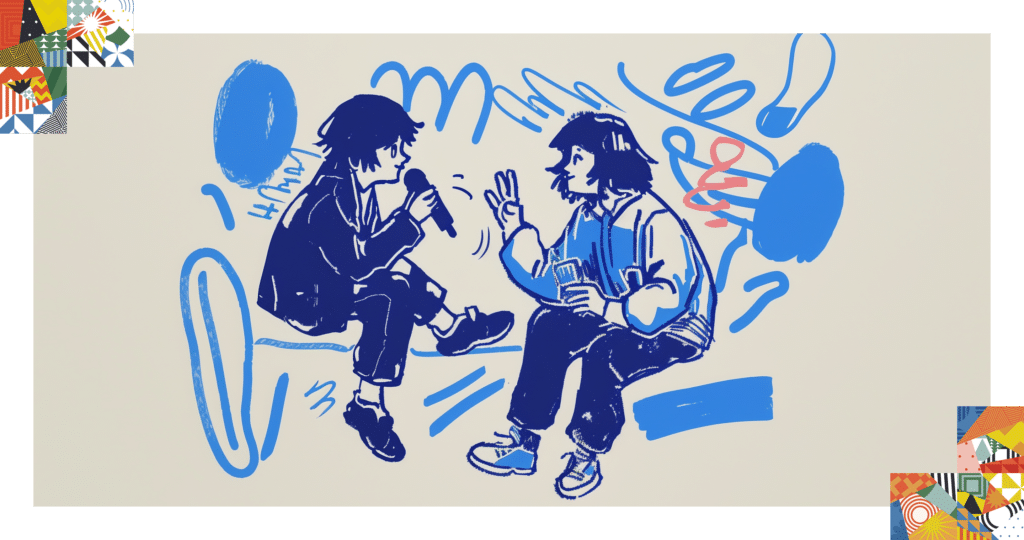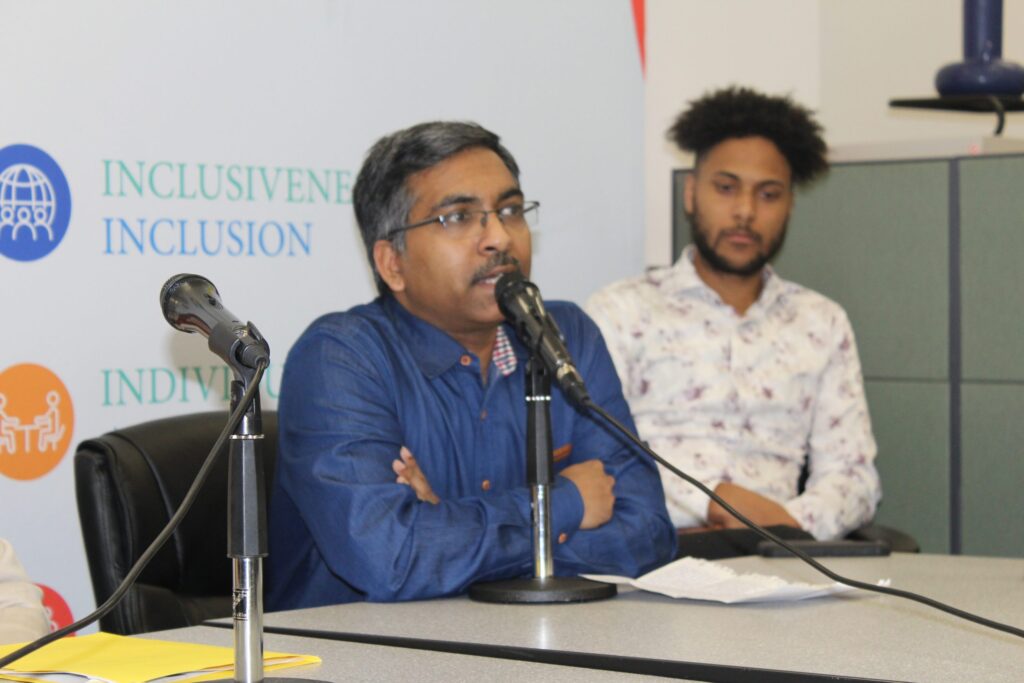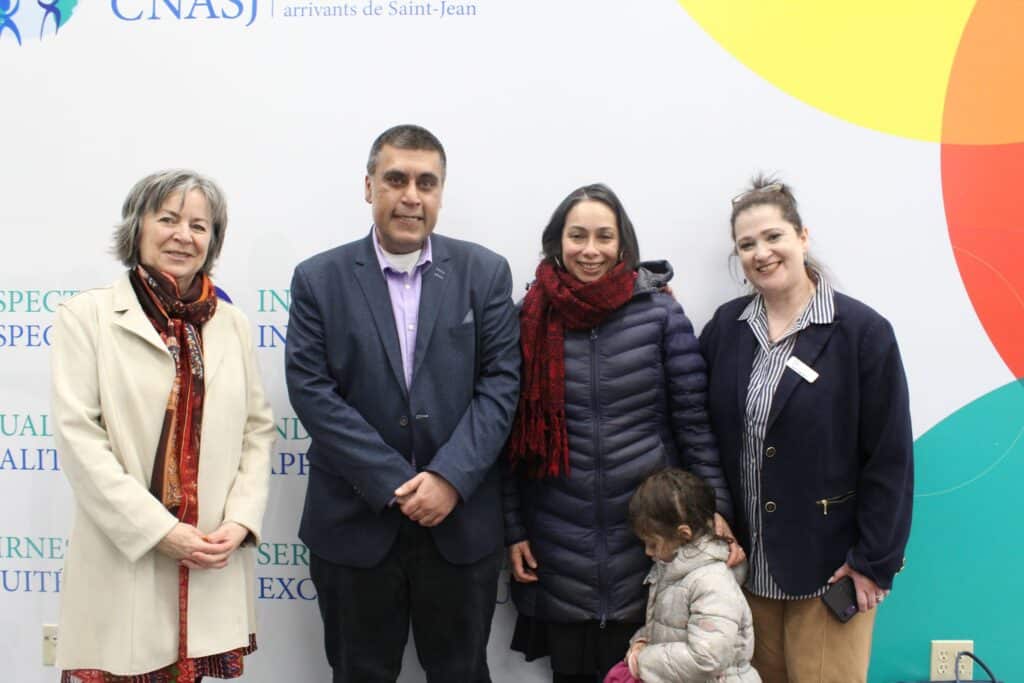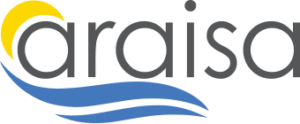Saint John Newcomers Centre
October 30, 2023

For this first member spotlight article, we bring you a special behind-the-scenes series where we delve into the captivating world of podcasting. Get inspired by two member organizations’ podcasts that share stories and insights about the newcomer journey. Learn from their experience and get a sneak peek into the future of their shows. Who knows, maybe you’ll be inspired to start your own! This article features Lina Gharbiya, the Anglophone Newcomer Settlement Lead at the Saint John Newcomers Centre, who sheds light on the Racialized 506 podcast.
ARAISA: What inspired you to create a podcast focused on the topic of immigration?
Lina Gharbiya: Working with newcomers, international students, families, youth, skilled workers, refugees and more, facing different kinds and levels of racism. We wanted to amplify the voices of under-represented groups and highlight the importance of strengthening meaningful and safe discussions for public participation, influencers, decision-makers and more.
We were hoping that by doing so, we could then effectively challenge the many forms of racism, whether these are in the political and economic structures of society, our legal system, healthcare, our educational institutions, the media, and in the all-too-frequent acts of racism experienced daily in our city.
Could you share the journey of turning that inspiration into a reality?
L.G: I had just met Bob [Bob Whitney] at the time. He is a retired history professor from the University of New Brunswick who worked on lots of human rights causes. He was the perfect person to ask for help and support. Bob, the Saint John Newcomers Center (SJNC) Director, the SJNC Communication Specialist and I had lots of meetings to figure out how we were going to do this. We all agreed that it was extremely important and that it was about time to give a voice to our newcomers in the community. A countless number of meetings resulted in the idea of a podcast to reach out to more people and to a different audience. Coming up with the titles, prioritizing subjects, identifying guest speakers, and the delivery were challenges we had at that stage.

The power of storytelling lies at the heart of podcasts. How do you select and curate the stories you feature?
L.G: Stories within the community, the media and what we hear from newcomers are our main inspiration for our topics. Guests could be community members who represent a certain ethnic group, community influencers and representatives of sensitive and important positions in the community.
Were there any significant misconceptions or myths about immigration you aimed to dispel through your podcast? If so, how did you address them?
L.G: When most newcomers have a different accent, people assume they cannot speak English, which makes them frustrated right away and/or it makes them think that these newcomers lack intelligence and knowledge. That’s why we invite various newcomers to talk about themselves and their experiences, politicians and media representatives to address the challenges newcomers face in the community, as well as school representatives to address challenges in schools and everywhere else.

What advice would you give someone wanting to start a podcast in the settlement and integration sector?
L.G: Identify your goal, make sure you answer the why and the how. This is very important. Be patient, and do not be shy to ask for help.
As we look towards the future, what can your listeners expect from your podcast? Any exciting projects or developments you’d like to share with us?
L.G: We have a new look this season! It’s still a podcast but with a different format. We hope listeners will enjoy it.
If you were to create a blooper reel of your podcast, what would be the funniest moment you’d include?
L.G: A fun fact is that some guests will go over their time, so instead of me saying ‘5 minutes left’ then ‘2 minutes left’ and so on, I have a cue card that I put on my camera so the guest will see and it will not affect the audio recording. People loved and laughed when I used the cue cards to inform the guests to wrap up ?
Do you have any podcasting rituals or quirky habits that help get you in the zone before recording?
L.G: Nothing specific, just preparing my regular spot on my dining room table, with my coffee in my special mug ?
Is there anything that surprised you in the podcasting world that you weren’t expecting?
L.G: How much easier it is than video recording! No need to worry about your appearance, facial expression, and body language.
How long does it take to create one podcast episode?
L.G: Anywhere between 12 to 24 hours depending on the length of recording and post-production. Even this range does not include the hours of planning and closing on recording meetings with guests.
Many aspiring podcasters are eager to know how to build a dedicated audience. What strategies did you employ to engage and grow your listener base?
L.G: Make sure not to repeat ideas, be consistent, and always have interesting guests and ask the hard questions people would like to hear. Remember, you are the voice, and you are giving newcomers a voice.
As hosts of an immigration-focused podcast, what kind of feedback have you received from your audience? Has it led to any unexpected outcomes or connections?
L.G: It [the podcast] is focused on newcomers’ challenges. Whether newcomers or locals, people love the program and the openness from the guests, the hard questions, and the great opportunity to have their voice heard.

Have there been any moments of doubt or uncertainty in your podcasting journey? How did you navigate through those challenging times?
L.G: Absolutely, there are always these moments! The time it took for planning and preparing was getting more and more challenging. But we had great guests discussing complex and often sensitive matters that we needed to uncover and discuss as a community. One of our main goals for these conversations and podcasts was to amplify the voices of underrepresented groups. This is core to our “Why” and will always keep us centred even when we face those challenges.
Lastly, if there’s one key takeaway you hope your listeners gain from your podcast, what would that be?
L.G: We are all one community, newcomers, oldcomers, local citizens, residents, whoever you are, we are all one, and our community cannot flourish without all of us working together for the best to move forward.
Listen to Racialized 506: Season 1 | Season 2
Want to showcase your initiatives?
Have a unique story to share? We’re inviting member organizations to contribute ideas for our ‘Member Spotlight’ articles. Share your insights and inspire your peers in the settlement and integration sector. We want to shine a light on your expertise and outstanding work!
